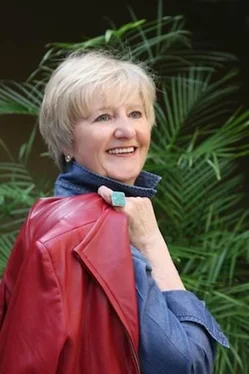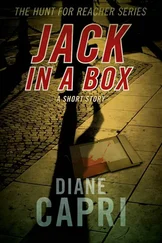Gaspar had said almost the same words to Kim a few hours ago. About Roscoe. And Finlay. And the boss, too. She suddenly understood she had a secret weapon. Which was Gaspar. Reacher thinks just like Gaspar . Men. Cops. Veterans. Same foundation. Same training. Same experience. Same prism.
Instantly Kim knew why she’d been chosen. And understood how she would win.
Simple yet profoundly easy: Reacher doesn’t think like me.
Kim turned to face the kitchen.
Gaspar had poured a mound of sugar and a river of milk into his mug, then added a dash of coffee, took a swig, smacked his lips, carried his mug over and settled into the seat Kim had just vacated.
Roscoe said, “I thought I knew Harry and Sylvia. Clearly, I didn’t. I went to school with Harry. Sylvia worked for me. I’d have sworn they were both as honest as the day is long.”
Kim was still in the hallway.
Gaspar looked up and said, “Ten minutes. And I’m not kidding.”
“All right, already, I’m going.” From inside the guest bathroom, she couldn’t hear the remainder of their conversation.
Margrave, Georgia
November 3
2:40 a.m.
A huge harvest moon showed Kim the buildings growing smaller in the side mirror along the county road through Margrave, the post office, the police station, and finally Eno’s diner. She watched them slide behind her without regret.
Roscoe had advised them to travel through the peanut farms, to stay away from the highway cloverleaf, which would still be lousy with government agents from many different jurisdictions. The advice suited Kim just fine.
Gaspar turned west on a wandering road that led toward some place called Warburton. It took them through miles of arable land. They passed bumpy side tracks that looped around and led back to the road again, suitable for dropping farm equipment and workers. Otherwise, nothing but uninterrupted middle-of-nowhere.
Then seven or eight miles from town, on the right, Gaspar pointed out a stand of trees. A little oval copse. The only visible cover amid acres and acres of plowed red dirt. He said, “Finlay testified three bodies tied to Kliner were found hidden behind those trees in a burned out Buick. Stuffed into the trunk. About a week old, he figured. Males. Two shot with the same gun. Different weapon on the first.”
They hadn’t seen a single moving vehicle since they left Roscoe’s place. Therefore Kim understood how the bodies could have lain there for days without being discovered. But didn’t anyone miss them? Come asking? She shivered. Gaspar misunderstood. He turned up the heat.
“Who killed them?” she asked.
“Never proved, but you know who my money’s on.”
“Reacher?”
“Pretty convenient scapegoat, seems to me,” he said.
“Meaning what?”
“You’re always demanding evidence. Except for Roscoe’s kid, where’s the proof Jack Reacher was ever here at all? Nada. But Joe died here. We know that for sure. The kid could be Joe’s. The brothers looked alike, they say. Did you consider that?”
She might have argued, but his theories were as plausible as hers. Maybe more so. What would Reacher think? She shrugged, communicating with him in his own silent language.
The Warburton Road continued west, but Roscoe had directed them to turn before Warburton itself, head north, and then enter the freeway about twenty-five miles from Margrave. Gaspar watched for ice patches deposited by frosty dew. Sunshine or traffic would warm the roads to melting point later. For now, in the moonlight, black treachery remained invisible.
At the highway the Crown Vic merged with light traffic northbound and settled into a droning cruise. Several times, Kim saw Gaspar move in his seat, seeking a comfort zone she knew he would never find. Still forty-five miles from Hartsfield. Their schedule was too tight. Again. Her stomach was already churning. Dwelling on the upcoming flight wouldn’t help.
She said, “You know, this would be a good time to tell me why we’re going to DC.”
He knew she needed distraction. He said, “I wish I could tell you. But no. I spent about three hours on background data while you and Roscoe were dealing with the malcriada and didn’t get to a conclusion.”
“The what?”
“The malcriada? The badly raised female brat. My sister would have been sent back to Cuba for that behavior. Yiyiyiyiyi.” He shook his hand rapidly, loose wristed, like Ricky Ricardo.
“You have a sister?” Kim asked.
He didn’t answer. He said, “All indicators point to DC. It’s our best lead.”
“Or worst. Perhaps you noticed somebody’s very good at misdirecting us in this case?”
He took one hand off the wheel and used his fingers to enumerate his points. “Sylvia said she came from DC when she applied for the Margrave job. The Chevy guy claimed to be a DC lawyer. Finlay’s been headquartered in New York for the past two years, but before that, especially when he was allegedly providing Sylvia a reference, he was a DC resident. Could be an elaborate head fake, but it’s hard to get that many stories lined up over a five year time frame. Amateurs would try to broom all that out. Impossible. DC’s a big town, people coming and going all the time. Much smarter to work with true stuff in place.”
He glanced over. She said nothing, thinking things through. Maybe sensing he hadn’t persuaded her, he offered new facts. “I received one individual tax return for Sylvia. Same social security number as the joint returns sent to you and the same maiden name. I spent a while chasing those down. All DC all the time.”
“OK,” she said. “You win. DC is not only the best lead we have, it’s the only lead. Is that what you’re saying? When all roads point to Rome?”
He nodded. “One more thing. The social on her tax returns is a real number, and it was issued from DC.”
“Well, duh,” she said, without rancor.
“Touchy.”
Maybe he didn’t know? “I meant it’s obvious where the number was issued because it begins with 579. Means DC.”
“I’m aware,” he said.
She explained the logic. “Matching numbers is what computers do best. If Sylvia and Harry didn’t list easy numbers the same way on every return and match stuff already in the system, the computers would have spit everything out, see?”
“I phoned a friend. Asked for a closer look,” he said.
She bristled. “You called the boss?”
He shrugged. “The birth certificate used to support the number actually belonged to a woman four years younger.”
“Let me guess. You found her and she’s living in DC?”
“Not exactly. She died in a car wreck in DC. A year or so before Sylvia showed up in Margrave.”
Kim said, “Wow.” Then: “So we weren’t too far off with our guesses about Sylvia.” Witness protection programs created new identities; stealing existing identities was the more common criminal custom. “Pretty ballsy to use a stolen identity working in a cop shop.”
Unless Roscoe knew .
“Sylvia is nothing if not ballsy,” Gaspar said. “It gets even better, though. The dead woman’s prior address is a Crystal City post office box. But no criminal records before or since her date of death in any of the FBI databases for Sylvia Kent in DC or anywhere else. Not a Government employee. Not a veteran. No death certificate, even.” He glanced over. “And don’t ask me how I know all that. You won’t like the answer.”
Kim compared what he said and what she already knew. Identity thieves she’d investigated were unconcerned about the crime itself. The usual problem with stolen identities as a free ticket to a new life was that something was wrong on the front end: A mistake in the paperwork gets kicked by some computer; unscrupulous seller repeatedly retails the same identity; belongs to a criminal; owners turn up and make trouble. A thousand things can go wrong, and you never see the bullet that gets you. Kim had arrested thieves in all these circumstances, many times. Living five years undiscovered on a stolen identity was a remarkable achievement.
Читать дальше












